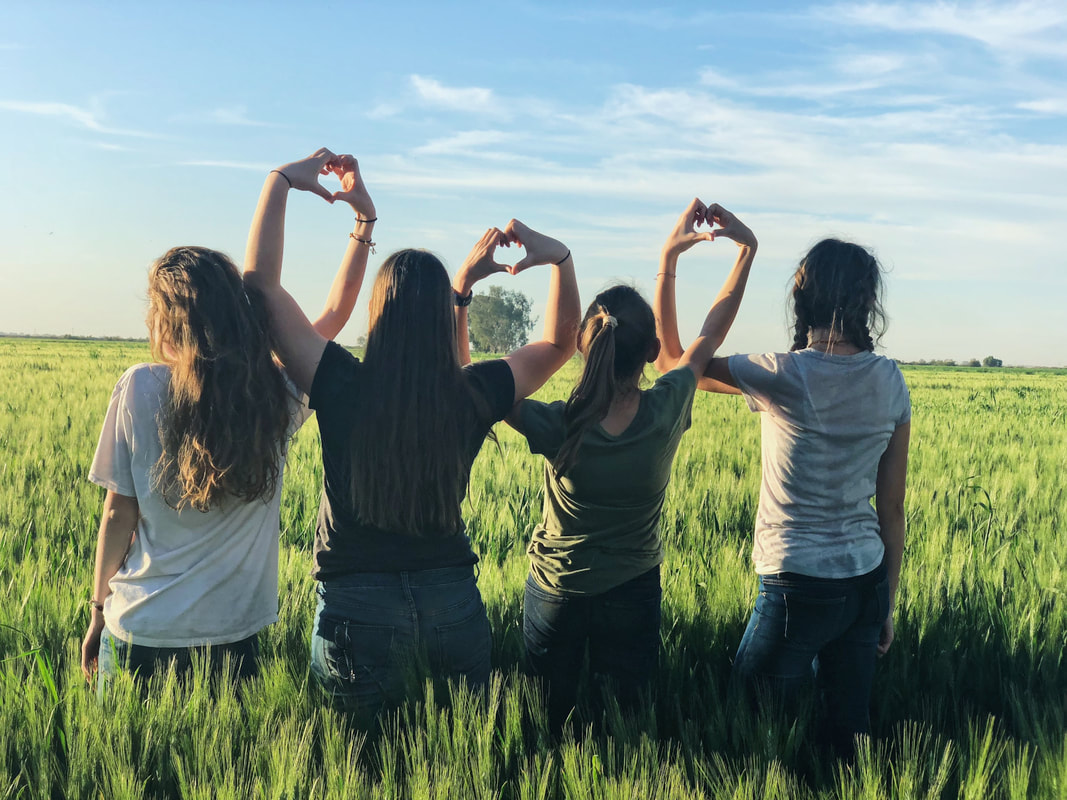|
Parents of new babies can all agree that the postpartum period is nothing to scoff at. There are so many adjustments that parents and babies go through in the first couple of months that can make the postpartum period challenging, such as sleep disturbances, seemingly constant hunger (for the baby but also for a breastfeeding parent!), and not having time to tend to yourself, other members of your family, or your home. These adjustments can be extremely challenging (and I would argue impossible) for one or two people alone, especially if one parent needs to work, and are even more taxing when parents are not surrounded by their typical "village." This is why creating a meaningful support network is an imperative step in the postpartum planning process. Types of Support There are many types of support that will really benefit parents as they navigate this new chapter of their lives:
Where to Find Support Where to access these supports largely depends on where you live and, to a smaller degree, your income or work benefits. There are many ways to find the above listed resources in and around Calgary:
Under ideal circumstances, a family would start planning for the postpartum period before the baby arrives. However, sometimes that is not always feasible, or the plans a family did have in place needed to change due to events that are beyond the parent's control. Creating a support network is beneficial at any stage in the parenting journey. The most important thing to remember is that there is no shame in asking for help, even temporarily, to ensure that your needs and the needs of your family and home life are met.
If you have any questions or think I may be someone that you would want on your team, please feel free to reach out! I would love to hear from you! All the best, Krista, KKH Postpartum Doula
0 Comments
 A lot of people I've talked to about my recent training as a postpartum doula look at me with a mix of excitement and hesitancy. "It's great that you're a postpartum doula! ... but, what exactly is a postpartum doula?" The lack of understanding is not lost on me. When I was talking to my husband about how I enrolled in my postpartum training and later when we were talking about my doula business, he admitted that he didn't know what a postpartum doula was until I explained it to him. Truth be told, I didn't know what they were either until I was about 9 months postpartum with my daughter and the role was first introduced to me. Given how rough the latter part of my maternity leave was, I wished that I had known about postpartum doulas sooner. There are families from a variety of cultural backgrounds that I've read about and spoken to about postpartum help that seem shocked at the prospect of parents not having help after a baby arrived. Postpartum support is built into the fabric of these cultures. Family members, community members, and (grand)parents all help new parents in their respective ways. Their support ensures that the birthing person especially gets much needed rest, nourishment, and nurturing to replenish what was lost after giving birth. There are many families who immigrate to countries such as Canada who find themselves blindsided at the lack of support after baby arrives. Sometimes, these new parents have family members come from their home country to support them for some time in the postpartum period. Other times, this cannot happen, such as during the COVID19 pandemic and airports were shut down. This is where additional supports, such as those from a postpartum doula, are so important. The term 'doula' is Greek for "a woman who serves." Postpartum doulas are individuals (usually women) who help or 'serve' parents in the fourth trimester (the first 12 weeks after a baby arrives). Most postpartum doulas are trained by recognized doula trainers. This helps to ensure that support given to families is done in a professional, uniform, and non-biased way. Even though postpartum doulas are trained professionals, they are not medical professionals. The help a postpartum doula offers is temporary while parents adjust to their new family dynamic. This can be especially appreciated when supports are limited, there are older siblings, or the parents had multiples (twins, triplets, etc). The support can be practical or emotional in nature and can include:
The ways a postpartum doula can help a family in the postpartum period are vast and also curated to what each family needs. The above list is by no means exhaustive, but I hope paints a picture of what all I-- and other postpartum doulas-- can do to support a family during this special time.
If you have any other questions about postpartum doulas, or are interested in meeting with me to see if my services are a match for your family, please don't hesitate to reach out! All the best, Krista, KKH Postpartum Doula  Hiring a postpartum doula can be a big investment for a family, especially a family that is in need of help ASAP. It is so important to know that your choice in hiring a doula is the right one. Postpartum doulas are individuals who help families in the fourth trimester (the first 12 weeks after giving birth or welcoming a baby into the family), during the postpartum period. Trained postpartum doulas oftentimes have evidence-based knowledge, experience, resources, and are unbiased in their approaches to support and care. Postpartum doulas are not medical professionals; they are, however, professionals trained in emotional, physical, and practical postpartum care. Postpartum doulas can be hired in advance-- before baby comes-- or may also be considered when parents are in the thick of it and struggling with all of the additional duties that come with a new addition to the family. No matter which camp you or a loved one may be in, having a list of questions and considerations to ask a postpartum doula before committing to signing a contract is key. Below are some questions you can ask a postpartum doula:
There are so many other great questions to ask a postpartum doula around a family's specific circumstances, so don't let this list limit you. Answers to these questions can provide parents with the confidence they need to move forward with hiring the right postpartum doula for their family's needs Other tips of note before hiring a doula:
I hope that these questions and tips help you (and your partner, if relevant) feel ready and confident to take that next step towards hiring a postpartum doula! |
AuthorKrista Kirkpatrick-Hatch, BA Psyc (Hons.) is a Postpartum Doula in Calgary, AB, Canada Archives
January 2024
Categories
All
|



 RSS Feed
RSS Feed
